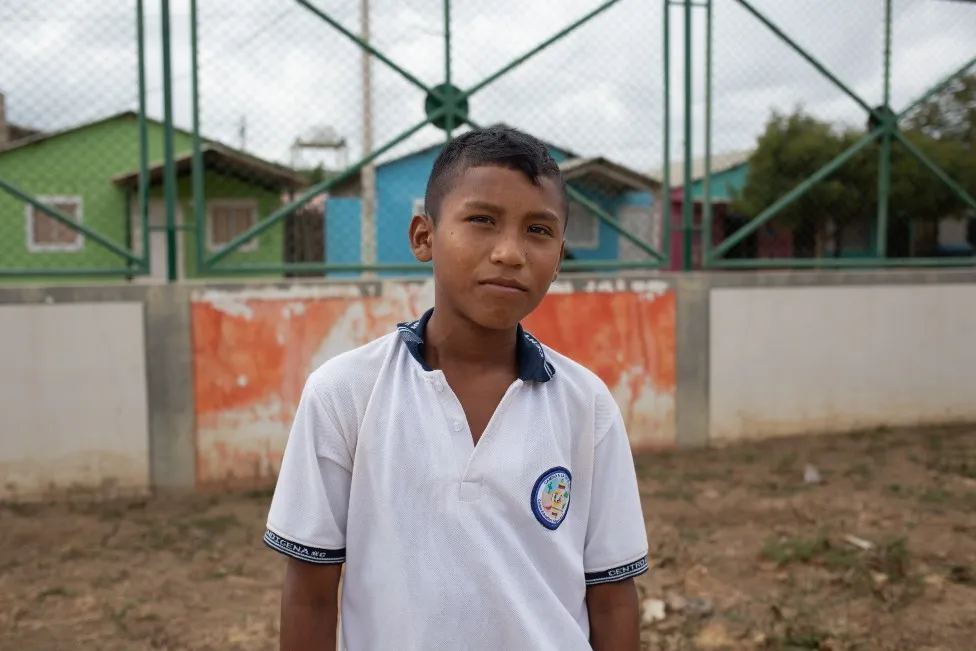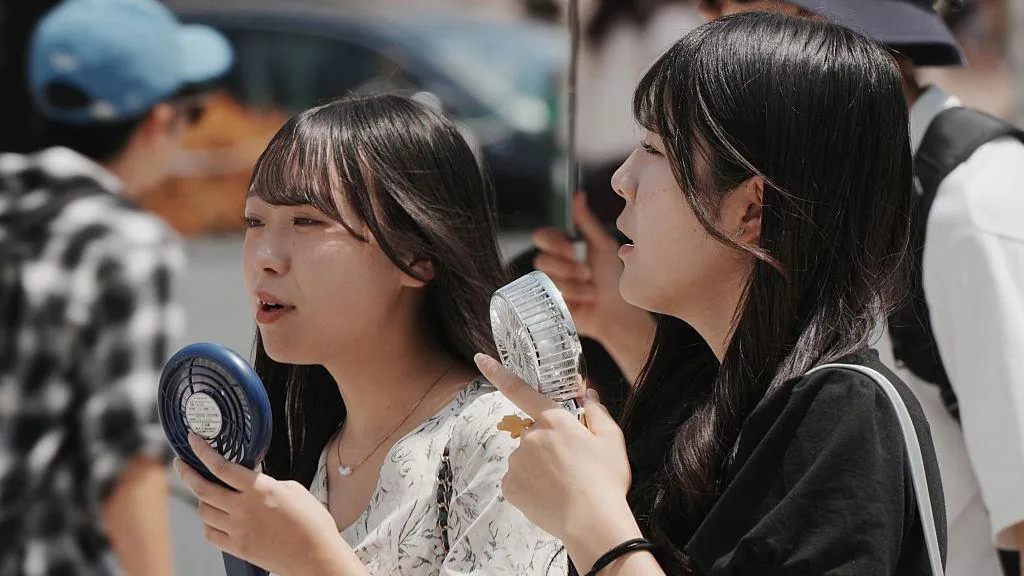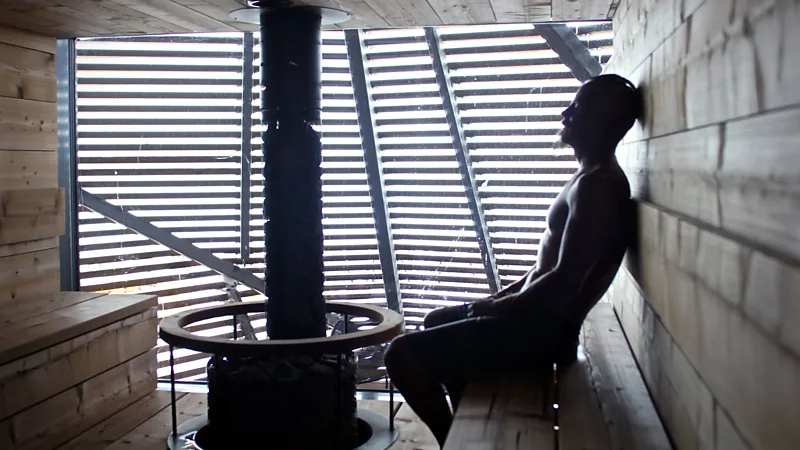The children braving a risky border crossing to attend school
Every morning, 13-year-old Marcelo Jesus Gouriyú and his nine-year-old brother leave their home in the small Venezuelan town of Calié at half past four in the morning to go to school in Colombia.

The two children walk unaccompanied through the dark for around two hours to make it in time for the start of their lessons at half past six.
As the sun rises, they slip into Colombia through informal border crossings known as trochas to reach their school in the town of Paraguachón.
The trochas in this region on Colombia's northern tip are dangerous rural dirt tracks that weave across the arid border and are controlled by local armed groups, which often charge users a fee to pass through.
In what may well be a sign of teenage bravado, Marcelo denies being scared of journeying through these informal crossings day in day out.
"I like coming to school in Colombia," he says, adding that "they don't really have lessons there [where I live]".
Venezuela's crumbling economy and ongoing socio-political crisis has pushed many institutions to the brink.
Rural schools lie neglected and barely functioning, offering lessons only a few days a week and facing a dire shortage of teachers, forcing Venezuelan children like Marcelo to risk the dangerous border crossing.
At the Centro Educativo Indígena Número 6, the school Marcelo attends in Paraguachón, roughly 40% of the 1,270 students are Venezuelans who cross into neighbouring Colombia to access better schooling.
More than one-third of these Venezuelan children use trochas to make the crossing.
And not all of them share Marcelo's bravado. One of his classmates admits they are "dangerous".
"Sometimes I come to school and sometimes I don't," the boy, who is also 13, says.
And he is right to worry. According to Bram Ebus, a consultant for the International Crisis Group, violent clashes to control these trochas are not uncommon.
"In addition to extorting fees, criminal groups also use these trochas to transport drugs and illegal gold, or to charge smugglers for using their border crossings," Mr Ebus explains.
Parents are only too aware of the risks, but sending their children to school via the dangerous trochas is usually the only way for many families living along Venezuela's border with Colombia to guarantee their children education.
Those who can, accompany their children, but many parents have to stay behind to work in order to make ends meet in Venezuela's precarious economy.
It is a dilemma the mother of Marcelo's classmate faces and sometimes she prefers to keep him at home.
"These days I hardly come [to school] because my mother doesn't want to send me through the trochas by myself," the boy says.
Following a recent thaw in diplomatic relations between Venezuela and Colombia the trochas are no longer the only way to get across the border.
In January, the border reopened fully for the first time in seven years but, for many locals, the formalisation of diplomatic relations between Colombia and Venezuela has so far failed to make much of an impact on their daily struggles.
The informal trochas are often a more convenient alternative to taking long detours to the official border crossings, Mr Ebus explains.
Furthermore, many Venezuelans lack the necessary papers to cross at the official points. "Obtaining valid proof of identity has become increasingly challenging for many Venezuelans due to bureaucratic barriers, legal ambiguity and high costs," Mr Ebus says.
Around 200 of the students at Marcelo's school still use the informal trochas to get to class, school officials estimate.
"Those who come through the trochas, like our students, have no other choice," the school's headmistress, Georgina Deluquez, explains.
Mr Ebus says the Colombian and Venezuelan governments raised unrealistic hopes for a sudden improvement in the security situation along the border.
"Border communities have historically been abandoned by the state. While opening the border is a necessary step, both governments should also address the historical situation of underdevelopment in remote border areas," he argues.
Headmistress Georgina Deluquez says the influx of Venezuelan students has been a challenge for her school.
"Everything that happens in Venezuela has repercussions for us [in Colombia]. As long as Venezuela continues in crisis, children will continue to arrive and we do not have the capacity to care for them," she says.
This month alone, the school has received 11 new students - the majority of whom are Venezuelans.
But it is a challenge Ms Deluquez is determined to meet: "How could we leave them? How could I say no, if it is the only educational centre on the border? If we do not take them in, then what is left for the children?"
-bbc






